This guide will cover what are masters in music, how they are used, and what music artists own their recording masters.
- What Are Masters In Music
- What Does It Mean To Own Masters
- How Is A Master Recording Used
- Owning Masters vs. Publishing
- How Much Does It Cost To Own Masters
- What If You Don’t Own Your Masters
- What Music Artist Own Their Masters
- Master Recording Overview
What Are Masters In Music?
Masters are the final version of a song, and a master recording is what you hear on the radio or buy in stores. Masters are used for making copies of albums and singles or creating digital files to upload to streaming services like Spotify and Apple Music.
Generally, under a recording contract, an artist will transfer copyright ownership of recordings made during the term of the agreement over to the record label.
Suppose an artist is signed to a label. In that case, they are likely the “artist” on all recordings under their record contract with that particular company.
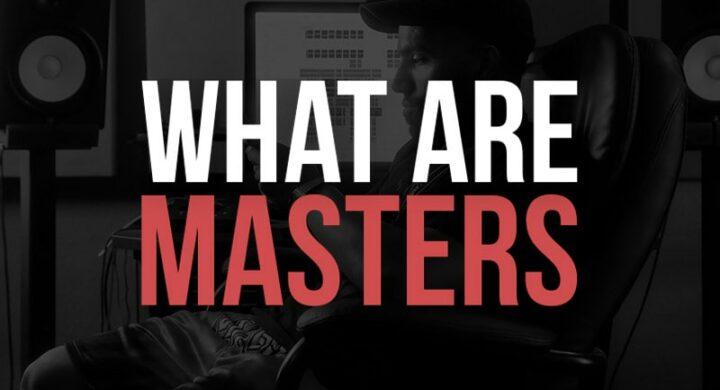
This means that when royalties are generated from these master recordings, they receive some money directly in addition to what they’re owed via publishing revenues.
Some artists own their masters, and some artists don’t. It depends on what type of contract or deal they have with the record label that signed them.
Independent musicians own their master recordings. These artists are what’s called “self-releasing” in the industry.
Owning masters is huge for independent musicians because they control their music and retain 100% of royalties from sales, streaming, sync licensing, etc.
They can also take advantage of several other rights that many label deals don’t include, such as controlling marketing campaigns and what songs go on what albums.
There are other ways artists can earn money from their master recordings, such as through a “master use license.”
This works with master recordings because the owner of the masters licenses its use to another party. For example, if an artist records a song and wants it played on radio or TV, they would need permission from whoever owns it (usually record labels) for it to be OK.
Related: What Is A 360 Deal in Music
What Does It Mean To Own Your Masters?
Owning masters is what independent musicians strive for. It’s what gives them complete control over their music, leading to bigger and better opportunities in the future.
If you’re an independent musician trying to break into the industry, owning your masters can take you a long way in establishing yourself as a professional and well-known artist.
Owning master recordings also gives artists 100% of royalties, which is much more than what they would receive if signed to a record label that might be taking up most or all of those rights!
Whether through publishing revenues or “master use licenses,” there are different ways musicians earn money from their music once they own their master recordings.
Related: What Are Music Royalties
How Is A Master Recording Used?
Masters in music are a type of recordings that are meant for commercial distribution. The recordings themselves can be distributed through any means, from physical compact discs to digital downloads over the Internet.
When you own masters in music, what you own is known as “the master tape,” which contains all the parts and elements used to make your final product (in this case, a song or album).
You also get ownership rights with these tapes because they represent an investment into that particular work by its creators. So if someone were to use what’s on the master tape without permission, they would be breaking copyright law.
The Difference Between Owning Masters & Publishing?
There are many differences between owning your masters and publishing. You can own what you record, but if you do not publish it, the world will never hear what you have created.
Publishing is also known as licensing, which means giving someone permission to use one of your recordings for a fee or commission.
This includes online streaming websites such as Spotify, Apple Music & Tidal, and others that offer their users access to songs by musicians big and small worldwide.
They are credited with writing credits on these songs by paying royalties (which then goes into an artist’s account).
Another example is when a DJ wants to use your song in their set, which they will then get paid for through what’s known as Sync Fees.
Related: What Is A Music Publisher
Sync fees are what you receive from the companies who allow the songs they represent to be used on TV shows, movies, or commercials.
In conclusion, you can own what you record, but nobody else will ever hear what you have created if you do not publish it. Publishing is what makes your music available to the public and for others to use.
It’s important to know what you own & what you don’t, as well as what publishing entails so that both sides of the music business make sense for artists, songwriters, music producers, and more alike can continue making a living doing what they love.
How Much Does It Cost To Own Your Masters?
In the music industry, owning masters is what an artist or band wants to achieve. In today’s market, it can be challenging, if not impossible, for most artists and bands because they are tied up in some deal with a label that owns their masters.
This may seem like something you have to do for new artists starting, but what if you did not have to sign your masters over? This is what many artists are trying to achieve.
What does it mean to own masters for a new artist or band that wants freedom? It means releasing music on your terms and holding ownership rights when it comes down to what happens with this music in the future.
Owning your masters in music means that you can do what you want with them, sell or give away the number of copies to as many people as you would like without having a label company telling you what is going on.
Owning your masters costs a lot of money. Also, the label company does not want it to happen. They don’t want to give up what they have, so what is the solution? To own your masters, you need to pay the label company, which can be astronomically high fees.
This also means that if someone wants to release the music in another format, whether it would just be on vinyl or even cassette tapes, you are paying for all of these releases with no guarantee that the money will ever come back to you.
What Happens If You Don’t Own Your Masters?
You will have to deal with whatever the label company says because they are the ones who own your music.
The label company will want the copyrights of ownership and want it to be theirs forever or until an agreement can be made between both parties if this happens at all.
This may mean even giving up what you own so the label company could later sell it for what they are worth.
This also means that you have no say in what happens with your music. The choice would be made without consulting you, which may make or break a band’s career.
The most important thing that bands and artists should know about what happens with their music is that they are not making money from it. This means no royalties, no profit sharing, nothing at all, which makes what you do for a living now nonexistent.
What Music Artist Own Their Masters?
There are many music artists out there who own what they record and what is published as well. Some of these artists may have been with a label company before but left it for one reason or another.
Usually, they decided that owning their masters would be better than anything else because of not getting what the label promised.
Owning your master recordings means holding onto them for life and what you do with them is up to your creative mind.
This means you have control over what happens to your music and how it will be distributed or released in other formats without having a label to ask for permission.
The music artists that own their masters include names like Rihanna, Frank Ocean, Jay-Z, Ciara, and Metallica, to name a few. Owning what they record is what these artists want because it makes them feel that what they do in the studio is theirs 100 percent.
Master Recording Overview
Music masters are the final versions of songs, while master recordings are what you hear on the radio or buy in stores. These masters are used to make copies of albums and singles or create digital files uploaded to streaming services like Spotify and Apple Music.
In the often complex world of the music business, a record label plays a pivotal role in the career of an artist. When an artist signs a record deal, it typically involves giving the label the legal rights to the master recording.
This arrangement enables the record company to control the recorded music and often receive the lion’s share of revenue generated from it.
However, not all record deals are the same. Independent artists, for example, may prefer to retain full ownership over their master rights and have full creative control over their music.
This differs from traditional deals, where the record labels hold the rights to the masters, while artists receive royalty payments and, sometimes, tour support.
In such arrangements, the label owns the master and Pro Tools session files, often made in a recording studio under the supervision of a music producer.
The importance of owning the masters means more money and power for the artist. The saga of Taylor Swift and Big Machine, her first record label, provides a clear example.
Swift didn’t own her masters, limiting her legal power and potential future royalties from her original recording. This scenario is common in artist contracts, where the label recoups recording costs from the artist’s earnings before they see any profits.
Nevertheless, an artist’s legal right to their masters can enable them to release tracks to other artists or for different purposes, something that’s not always possible when a record label owns the masters.
Thus, for musicians, the master recording isn’t just about the final product; it’s a symbol of creative control and economic freedom.
Whether you’re an artist or a fan, understanding the intricacies of recording contracts, master rights, and publishing rights sheds light on how the deal structure in the music industry can significantly impact the artist’s journey.
I hope you now have a good understanding of what music masters are.
Related: What Is Indie Music

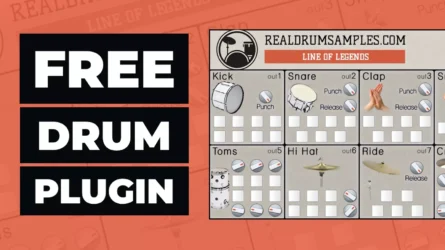
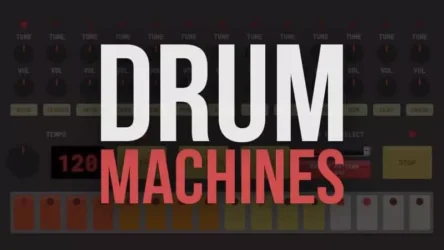
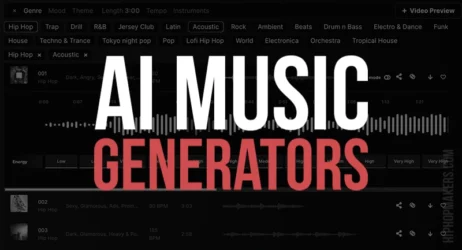
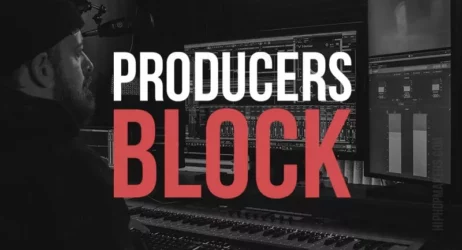
What this article does NOT mention is how an artist can own their masters. Artists can record, mix and master their own recordings or pay for their own recordings. A record label didn’t invest in the whole process of making the record. Simply put, they own their Masters. Artists can license and do business with a record label and split 50/50 or 15/85 or whatever depending on the record company’s capabilities, expenses to press your record, and how hard they push and promote your record. Remember, they also have to pay their employees a living wage. This article could have said “put your own money and resources into making your own record” and that’s how you own your Masters. Obviously, if a record label pays for that expensive recording they can for sure ask to own or get a bigger cut of Master side royalties for a certain amount of time, considering they invested money in it.